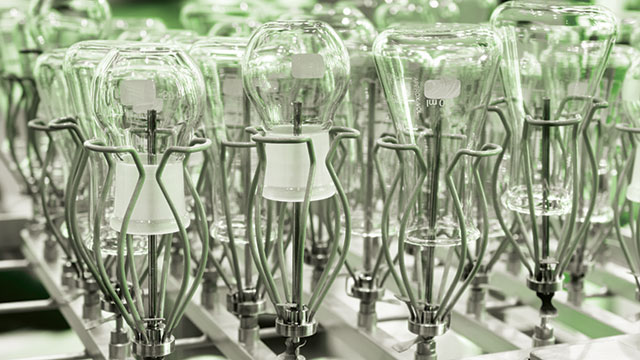The Benefits of Machine-Washing Your Laboratory Glassware
Laboratory glassware washers offer numerous advantages when used right

Laboratory glassware can be washed by hand or machine. While machine-washing offers numerous benefits, it is only effective when done properly. Nonetheless, even as manual cleaning of glassware becomes less and less common in the lab, there are certain situations in which it is still useful.
According to David Wasescha, a product manager at Labconco (Kansas City, MO), one of the major benefits of machine-washing is reproducibility. “In an ideal situation, all glassware would be washed by machine to eliminate variability from the washing process. He adds that an automated washing process allows laboratories to easily implement standard operating procedures that can be followed by any given user.
Machine-washing is often a more effective means of cleaning than handwashing. As Lisa Choplo, associate project manager at Miele Professional (Princeton, NJ), explains, with a lab washer, “one can use hotter water and stronger cleaning agents to give a much more intensive wash.” In an application note, Choplo cites reports that have demonstrated laboratory glassware washers are even effective for residues that scientists sometimes assume require handwashing with solvents, alcohols, or acids.
The lack of human contact with potentially harmful substances is another advantage of machine-washing, according to Jeff Phillips, senior director of science and marketing at Alconox, Inc. (White Plains, NY). “In a laboratory, the less contact with things that are unpleasant [e.g., mutagens], the better,” he says.
Importantly, automating the washing of glassware streamlines the process and frees up technicians to perform other tasks, says Choplo, which serves to increase overall laboratory productivity. She points out that although a laboratory glassware washer is a substantial capital expenditure, the labor reduction afforded by the automation means most laboratories will quickly get a return on their investment.
Still, there are times when washing laboratory glassware by hand might be desirable. For example, certain types of glassware are more susceptible to being bleached or dissolved; these issues are less likely to arise with handwashing, explains Phillips. He notes one advantage of manual washing is that more mechanisms of action may be used to remove residuals, such as emulsification. Larger glassware pieces, which might not fit in a typical under-counter laboratory glassware washer, may also require handwashing, Wasescha adds.
While there are many advantages to washing laboratory glassware by machine, steps must still be taken to ensure an effective wash. Phillips outlines some best practices for machine-washing your laboratory glassware:
- Know your residues. Certain glassware residues are soluble in a basic detergent, while others require a more acidic detergent. Combining a basic wash with an acid rinse can provide the best of both worlds.
- Orient glassware in the washer at an angle. If a graduated cylinder is placed vertically, water can pool on the top and dry, leaving residues behind. Placing that cylinder at a slight angle will ensure the water comes off.
- Make sure glassware pieces are not touching, and do not overload the washer. Sufficiently spacing out glassware enables water and detergent to reach each piece.
- Get the temperature right. For sensitive glassware, such as pieces made out of soda-lime glass, the rate at which glassware dissolves increases with increasing temperature.
- Provide sufficient rinse times. If rinse times are too short, residuals may not get completely washed away and re-deposition can occur.
For additional resources on glassware washers, including useful articles and a list of manufacturers, visit www.labmanager.com/lab-washers
